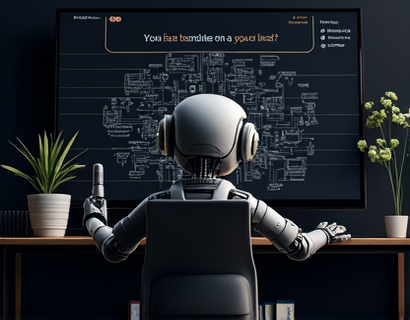Revolutionize Your Home: Explore the Latest Smart Appliances for a Modern Lifestyle
In the fast-paced world of today, the concept of home living is undergoing a significant transformation. The integration of smart technology into everyday appliances is not just a trend but a necessity for those seeking a more efficient, convenient, and sustainable lifestyle. This article delves into the latest innovations in smart appliances, designed to seamlessly blend into modern life, offering exceptional quality and competitive pricing. These cutting-edge devices are meticulously curated to enhance your daily routines and elevate your living experience.
The journey towards a smarter home begins with understanding the core benefits of smart appliances. These devices are equipped with advanced features such as Wi-Fi connectivity, voice control, and remote monitoring, which allow for greater control and convenience. For instance, smart thermostats can learn your temperature preferences and adjust accordingly, leading to significant energy savings. Smart lighting systems can be programmed to mimic natural light cycles, improving mood and productivity.
One of the most significant advantages of smart appliances is their ability to integrate with other smart devices in your home, creating a cohesive ecosystem. This interconnectivity allows for automated routines and scenarios, making your home more intuitive and responsive to your needs. For example, a smart security system can be linked with smart locks and cameras, providing real-time alerts and footage to your smartphone, ensuring your home is always secure.
Smart Kitchen Appliances: Transforming Cooking and Dining
The kitchen is the heart of the home, and smart appliances are revolutionizing the way we cook and dine. Smart refrigerators are no longer just storage units; they are now mini-computers with touchscreens, internet connectivity, and advanced features. These refrigerators can track expiration dates, suggest recipes based on available ingredients, and even order groceries online. Models like the LG InstaView Door-in-Door refrigerator offer a transparent door that lets you see inside without opening, saving energy and keeping your food fresh longer.
Smart ovens and ranges bring precision and convenience to cooking. With features like Wi-Fi connectivity, these ovens can be controlled via a smartphone app, allowing you to preheat, monitor cooking progress, and receive notifications when your food is ready. The Samsung Family Hub Oven, for instance, features a touchscreen interface and can be integrated with other smart devices to create a seamless cooking experience. Induction cooktops, another smart kitchen innovation, heat up quickly and precisely, providing energy efficiency and safety.
Blenders and food processors have also evolved into smart devices. The Vitamix Smart Blender connects to your smartphone, enabling you to access a library of recipes, adjust settings, and monitor blending times. This level of control not only enhances the cooking process but also ensures consistent results. Smart coffee makers, like the Breville Smart Coffee Maker, allow you to start your coffee brewing process from your phone, ensuring a fresh pot ready when you wake up.
Smart Living Room Appliances: Enhancing Entertainment and Comfort
The living room is where relaxation and entertainment converge, and smart appliances are making this space more enjoyable and efficient. Smart TVs are the centerpiece of modern living rooms, offering high-definition visuals, voice control, and streaming capabilities. Models like the Sony A1 Series Bravia TV integrate with voice assistants, allowing you to control your TV, adjust settings, and access streaming services with simple voice commands.
Smart sound systems elevate the audio experience, providing immersive sound for movies, music, and gaming. Systems like the Sonos Arc combine high-quality speakers with smart home integration, allowing you to control volume, switch between devices, and access music streaming services from a single interface. These systems can also work in tandem with smart speakers, creating a harmonious and versatile audio environment.
Smart home theater systems take entertainment to the next level, offering advanced features such as automated seating, dimming lights, and synchronized audio-visual control. The Yamaha YRT-INTEGRA RX-A7070A AV Receiver integrates seamlessly with smart devices, providing a centralized control point for your entire entertainment setup. With these systems, you can create a cinematic experience from the comfort of your home.
Smart Bedroom Appliances: Promoting Rest and Wellness
The bedroom is a sanctuary for rest and rejuvenation, and smart appliances are enhancing the sleep experience. Smart mattresses, such as the Tempur-Adapt Smart Mattress, adjust firmness and temperature based on your preferences, ensuring optimal comfort and support. These mattresses can also track your sleep patterns, providing insights to improve your rest quality.
Smart lighting systems in the bedroom can simulate natural light cycles, helping regulate your circadian rhythm. Philips Hue Smart Bulbs, for example, can be programmed to gradually brighten in the morning and dim in the evening, promoting better sleep hygiene. Smart window treatments, like motorized blinds, can be controlled to optimize light exposure and privacy, creating a perfect sleep environment.
White noise machines and smart speakers designed for sleep can generate soothing sounds and white noise, masking disruptive noises and promoting deeper sleep. The Honeywell HWA30F-W Smart White Noise Machine connects to your smartphone, allowing you to customize sound settings and schedule sleep sessions. These devices contribute to a more restful and peaceful bedroom.
Smart Home Automation: Centralizing Control and Convenience
At the heart of a smart home is the central hub that ties all devices together, providing a unified control interface. Smart speakers like Amazon Echo and Google Nest Hub serve as voice-controlled hubs, allowing you to manage lights, thermostats, security systems, and more with simple voice commands. These devices also integrate with various smart appliances, creating a seamless and intuitive user experience.
Smart home automation systems, such as Samsung SmartThings, offer advanced scheduling and automation features. You can set routines that trigger multiple devices to act simultaneously, such as turning on lights, adjusting the thermostat, and locking doors when you leave the house. These systems can be controlled through mobile apps, web interfaces, or voice assistants, providing flexibility and convenience.
Security is a critical aspect of home automation. Smart security cameras, like the Arlo Pro 4, offer high-definition video, night vision, and motion detection. These cameras can be monitored remotely via a smartphone app, and alerts can be sent to your device when unusual activity is detected. When combined with smart locks and door sensors, you can have comprehensive home security that keeps you informed and in control.
Energy Efficiency and Sustainability
One of the most compelling reasons to adopt smart appliances is their potential to reduce energy consumption and promote sustainability. Smart thermostats, such as the Nest Learning Thermostat, learn your temperature preferences and adjust settings to optimize energy use. These devices can save up to 10-12% on heating and cooling costs by automatically adjusting temperatures when you are away or sleeping.
Smart power outlets and surge protectors, like the TP-Link Kasa Smart Wi-Fi Outlet, allow you to monitor and control the power usage of connected devices. You can turn off devices remotely, schedule on/off times, and receive notifications when devices are in use. This level of control helps reduce standby power consumption and lowers your energy bills.
Energy-efficient smart appliances, such as LED lighting and Energy Star-rated devices, consume less power while providing equivalent or superior performance. By replacing traditional appliances with smart, energy-efficient models, you can significantly reduce your carbon footprint and contribute to a more sustainable future.
Conclusion: Embracing the Future of Home Living
The integration of smart appliances into your home offers a multitude of benefits, from enhanced convenience and efficiency to improved comfort and sustainability. These devices are not just gadgets but essential components of a modern, connected lifestyle. As technology continues to advance, the possibilities for smart home innovation are endless, promising a future where homes are smarter, more intuitive, and tailored to our needs.
Embracing the latest smart appliances is not just about keeping up with the times; it's about creating a living space that adapts to your lifestyle, making every day easier, more enjoyable, and more fulfilling. Whether you're a tech enthusiast or simply looking to improve your daily routine, the world of smart home appliances is worth exploring.










































